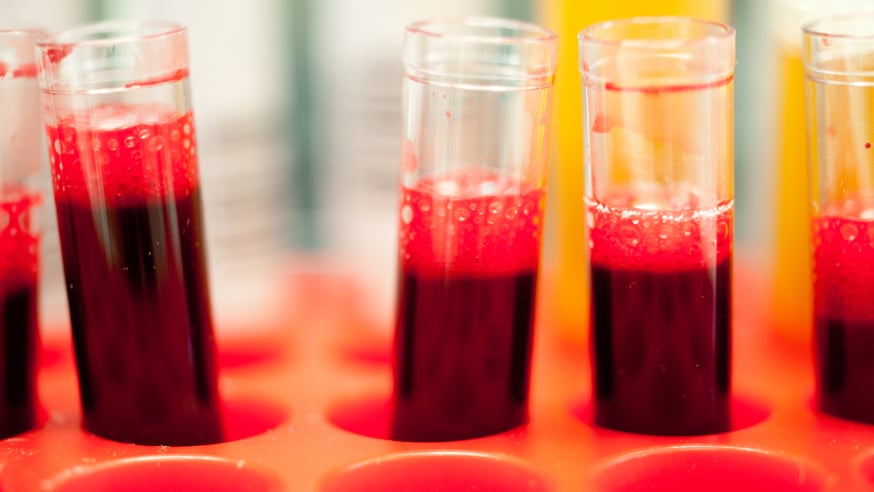
Scientists have identified how an inherited genetic variant, associated with an increased risk of developing the most common type of leukaemia, helps cancer cells survive.
The findings by researchers at The Institute of Cancer Research, London could lead to new ways to target the disease.
Chronic lymphocytic leukaemia (CLL) is a slowly progressing and incurable form of cancer that affects blood-producing cells in the bone marrow. It is diagnosed in over 4,000 people each year in the UK.
CLL sometimes runs in families and recent studies by the team at the ICR have shown that, rather than a being due to a single genetic fault, this inherited susceptibility is down to many subtle variations in a person’s DNA. Typically, the more of these inherited genetic variations that a person carries, the higher their risk of developing the disease.
Studies known as genome-wide association studies, which analyse genetic information from both patients and healthy individuals to look for genetic associations with diseases, have so far identified 31 areas of the genome where DNA variations are linked with an increased risk of developing CLL. One of these DNA variations is particularly common in CLL patients.
Key to 'cell death'
In a new study, published online in the journal Cell Reports on Thursday 11 August 2016, the ICR researchers identified for the first time the role that this area of the genome plays in the formation of this leukaemia.
They found that a single-letter DNA sequence variation – known as a single nucleotide polymorphism (SNP) – at a specific site in the genome disrupts the activity of a protein called RELA. This protein is involved in a process of controlled cell death that is a key part of the body’s natural defence against disease.
When a cancer cells starts to exhibit abnormal behaviour, signals like RELA are sent to begin controlled cell death. The cancer cells need to find ways to override these ‘pro-death’ signals in order to survive. In CLL, ‘pro-survival’ BCL-2 proteins, which resist cell shut-down, are particularly active and this is one of the hallmarks of the disease.
The ICR researchers found that the particular risk SNP, rs539846-A, interferes with the activity switch of a gene, called ‘BCL-2 modifying factor’ (BMF), that normally works to produce ‘pro-death’ signals. This makes it harder for RELA to flip on the activity of the gene and reduces the levels of the signal. This loss of ‘pro-death’ signal tips the balance towards ‘pro-survival’, so that the CLL cells can sidestep self-destruction.
'Could help design new drugs'
These findings complement work from recent clinical trials that showed drugs that mimic ‘pro-death’ proteins by targeting the ‘pro-survival’ BCL-2 pathway can produce a strong anti-cancer effect in CLL patients who had relapsed after initial treatment. The latest discovery could provide important insight into how these and similar drugs work so that their combined use can be optimised.
The research was funded by the blood cancer charity Bloodwise, with additional support from Cancer Research UK (supported by the Bobby Moore Fund) and the Arbib Charitable Fund.
Study leader Richard Houlston, Professor of Molecular and Population Genetics at the ICR, said: “Although many significant risk variants for this type of leukaemia have been identified, the biological mechanisms through which these variants affect leukaemia development have been less well studied.
“This study highlights the importance of cell death-inducing proteins such as BMF in controlling CLL development and could help in the design of new drugs to treat this disease.”
Dr Alasdair Rankin, Research Director at Bloodwise, said: “CLL is currently incurable and new, more targeted treatments are needed. This important research provides a valuable insight into how different genes interact to help cancer cells survive. Understanding this complex genetic picture will leave us better equipped to design drugs to selectively kill these cells.”